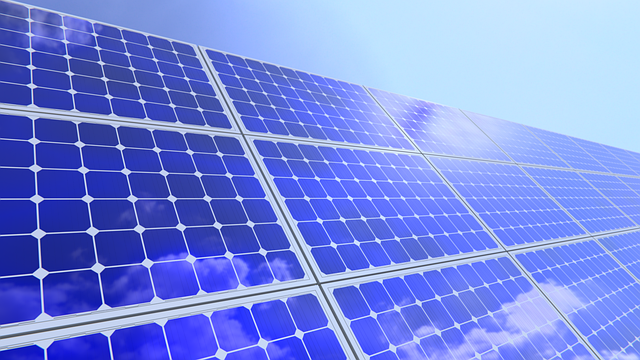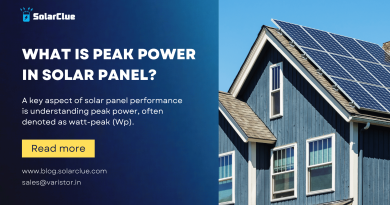Using Solar Panels for Your Electric Stove: A Guide
Table of Contents
Can I use solar panels on my electrical stove?
Solar energy has become increasingly popular as a renewable and sustainable power source. It offers numerous advantages, such as reducing carbon emissions and lowering electricity bills. Naturally, many individuals are exploring the possibilities of using solar panels for various electrical appliances, including their stoves. In this blog, we will delve into the feasibility of using solar panels to power an electric stove, considering factors such as the power required, panel capacity, and overall effectiveness.
Understanding Solar Energy and its Applications
Solar energy is harnessed by capturing sunlight using solar panels and converting it into electricity. During this process, photons from the sunlight knock electrons loose from atoms, generating a flow of electricity. This clean and renewable source of energy can effortlessly power various household appliances such as lights, fans, refrigerators, and even charge electric vehicles.
Power Requirements for an Electric Stove
Before considering solar panels as an alternative power source for your electric stove, it is crucial to understand the power requirements of the appliance. Electric stoves are power-hungry devices, typically consuming between 3000 to 5000 watts per hour, depending on the size and features of the stove. This high power consumption poses a challenge when attempting to power it solely with solar energy.
Solar Panel Capacity and the Stove’s Power Draw
Solar panels have a capacity that determines the amount of electricity they can generate. The most common residential solar panels have a capacity of around 250 to 400 watts. Considering the power requirements mentioned earlier, it becomes evident that a single solar panel would not be sufficient to power an electric stove alone.
To further complicate matters, solar panels generate electricity intermittently based on the available sunlight. This means that even if you were to install multiple solar panels, there may be times during low light conditions or at night when sufficient power cannot be generated. Therefore, relying solely on solar panels to power an electric stove is not a viable option.
A Possible Solution: Hybrid Power System
While it may not be possible to exclusively power an electric stove using solar energy, a feasible alternative is the implementation of a hybrid power system. This system combines solar energy with traditional electricity from the grid, allowing for a more sustainable and cost-effective solution.
By connecting your solar panels to a hybrid inverter, excess energy generated during peak sunlight hours can be stored in batteries or fed back to the grid in exchange for credits. When the stove is in use, electricity can be drawn from the grid, ensuring a continuous and reliable power supply.
The Benefits and Challenges of a Hybrid System
Implementing a hybrid power system for your electric stove offers various benefits. First and foremost, you can significantly reduce your dependency on conventional electricity sources, leading to lower utility bills and reduced carbon footprint. Additionally, the excess energy generated by your solar panels can be utilized for other household appliances or stored in batteries for future use during nighttime or cloudy days.
However, it is crucial to note that hybrid power systems require careful planning and installation. Hiring a professional solar energy provider is advised to ensure optimal system design and integration with your electric stove. Moreover, the initial setup cost of a hybrid power system may appear higher than traditional electricity sources, but the long-term savings and environmental benefits outweigh this investment.
Conclusion
Transform your kitchen with solar-powered cooking using SolarClue®! Our guide simplifies the process, from sizing the system to connecting solar panels to your electric stove. Enjoy sustainable and cost-effective cooking with solar energy day and night. Collaborate with SolarClue® experts to determine the right system size and explore battery options for continuous power. Elevate your culinary experience while contributing to a greener planet. SolarClue® offers high-quality, efficient solar panels tailored to your kitchen’s energy needs. Take the plunge into solar-powered cooking—contact SolarClue® today and let the sun be your chef’s companion!
Frequently Asked Questions
Yes, solar panels can generate electricity to power electric stoves, but it requires a sufficient solar setup.
The system size depends on your stove’s power consumption. SolarClue® experts can help size the system based on your stove’s wattage and usage.
Yes, a battery storage system ensures a continuous power supply for nighttime or cloudy days.
Solar panels generate DC power, which is converted to AC using an inverter. Connect the inverter to your home’s electrical system to power the stove.
Yes, by sizing the solar system appropriately, you can power various kitchen appliances, including electric stoves.
Ensure your solar system is sized to handle peak power demand. SolarClue® experts can assist in optimizing your setup.
Solar panels are generally universal. Choose high-efficiency panels based on available space and energy needs.
The cooking experience is similar, providing reliable and sustainable power with the added benefit of cost savings.
Yes, a well-sized solar system can power multiple appliances, contributing to overall household electricity needs.
Regular panel cleaning, inverter checks, and battery maintenance ensure optimal system performance. SolarClue® provides guidance on upkeep.




